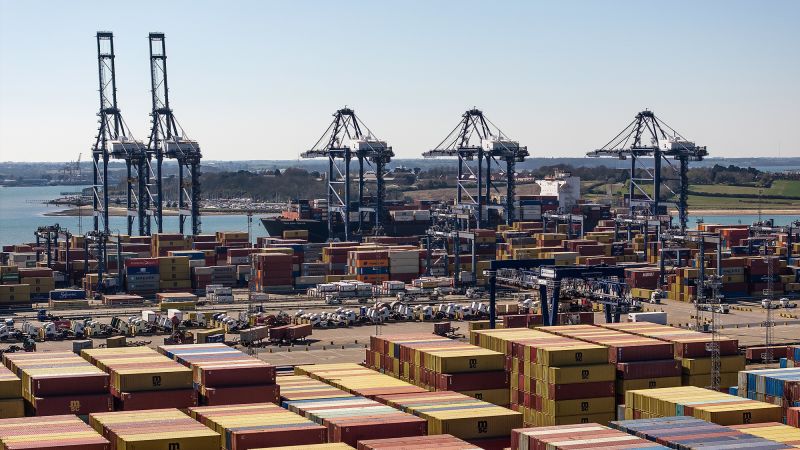In April, Britain’s economy experienced its steepest contraction in nearly two years, largely influenced by tariffs imposed by President Donald Trump. The country’s gross domestic product (GDP) is estimated to have shrunk by 0.3%, following a modest increase of 0.2% in March, as reported by the Office for National Statistics. This decline is the most significant month-on-month drop since October 2023.
The contraction was primarily driven by a downturn in the services sector, exacerbated by the government’s removal of a tax break for certain home buyers. However, the impact of Trump’s trade policies also played a critical role.
Rachel Reeves, Britain’s finance minister, described April as a particularly challenging month during an interview with Sky News. “There was a huge uncertainty about tariffs… If you dig into those GDP numbers today, (we see) exports weakening and also production weakening because of that uncertainty in the world around tariffs,” she stated.
UK goods exports to the United States plummeted by £2 billion ($2.7 billion) in April compared to March—the largest decline since records began in 1997. The statistics office indicated that this drop was “likely linked to the implementation of tariffs” affecting Britain’s exports to the US.
On April 2, President Trump announced a series of new tariffs targeting America’s trading partners, which included a baseline 10% duty on goods exported to the US and country-specific “reciprocal tariffs.” Although the implementation of these tariffs has been delayed until early July, the president has also introduced new tariffs on steel, aluminum, and car imports.
The UK has been relatively spared from the full brunt of these tariffs, with only the baseline 10% duty applied to British imports, while Trump agreed to eliminate tariffs on UK steel and aluminum. Britain was the first nation to establish a framework for a trade deal with Washington, which also includes an agreement to reduce tariffs on some British car imports.
Despite this, the overarching uncertainty surrounding tariffs has continued to impact businesses and consumers in the UK. Yael Selfin, chief economist at KPMG UK, remarked that while the trade accord between the US and the UK provides some level of policy certainty, tariffs on UK exports to America remain above their levels prior to April. “This is expected to act as a headwind for UK trade in the medium term,” Selfin noted in a recent report.

